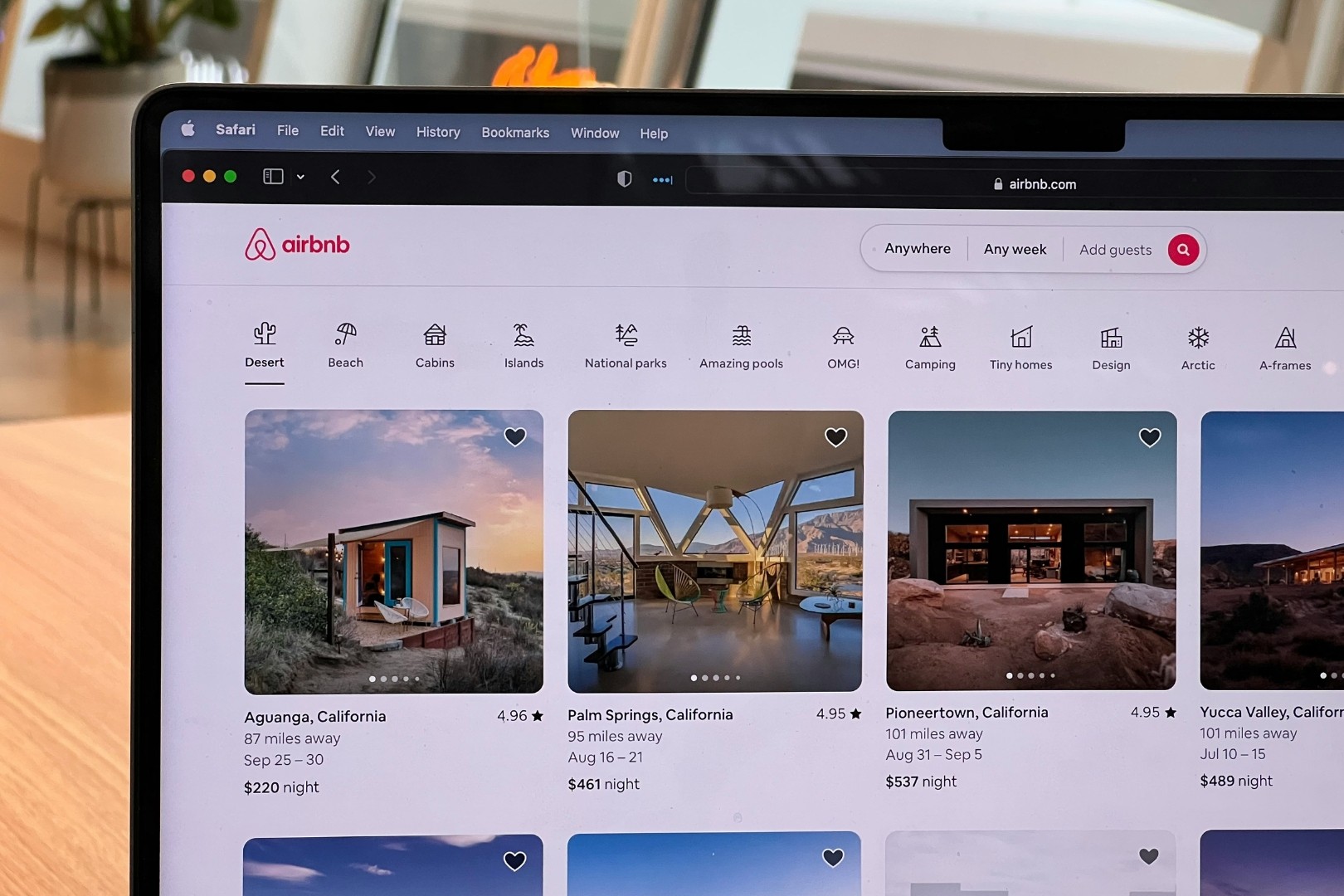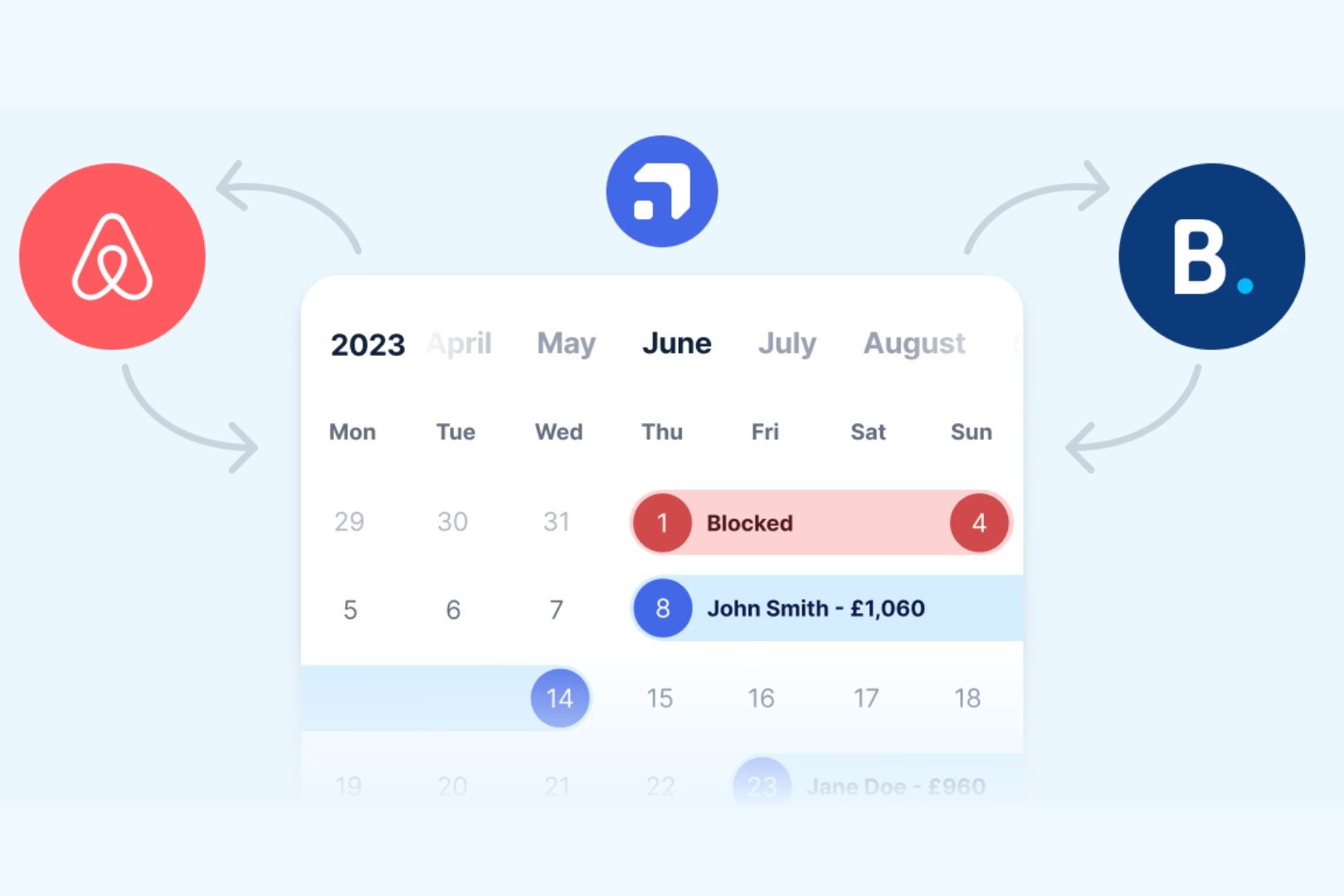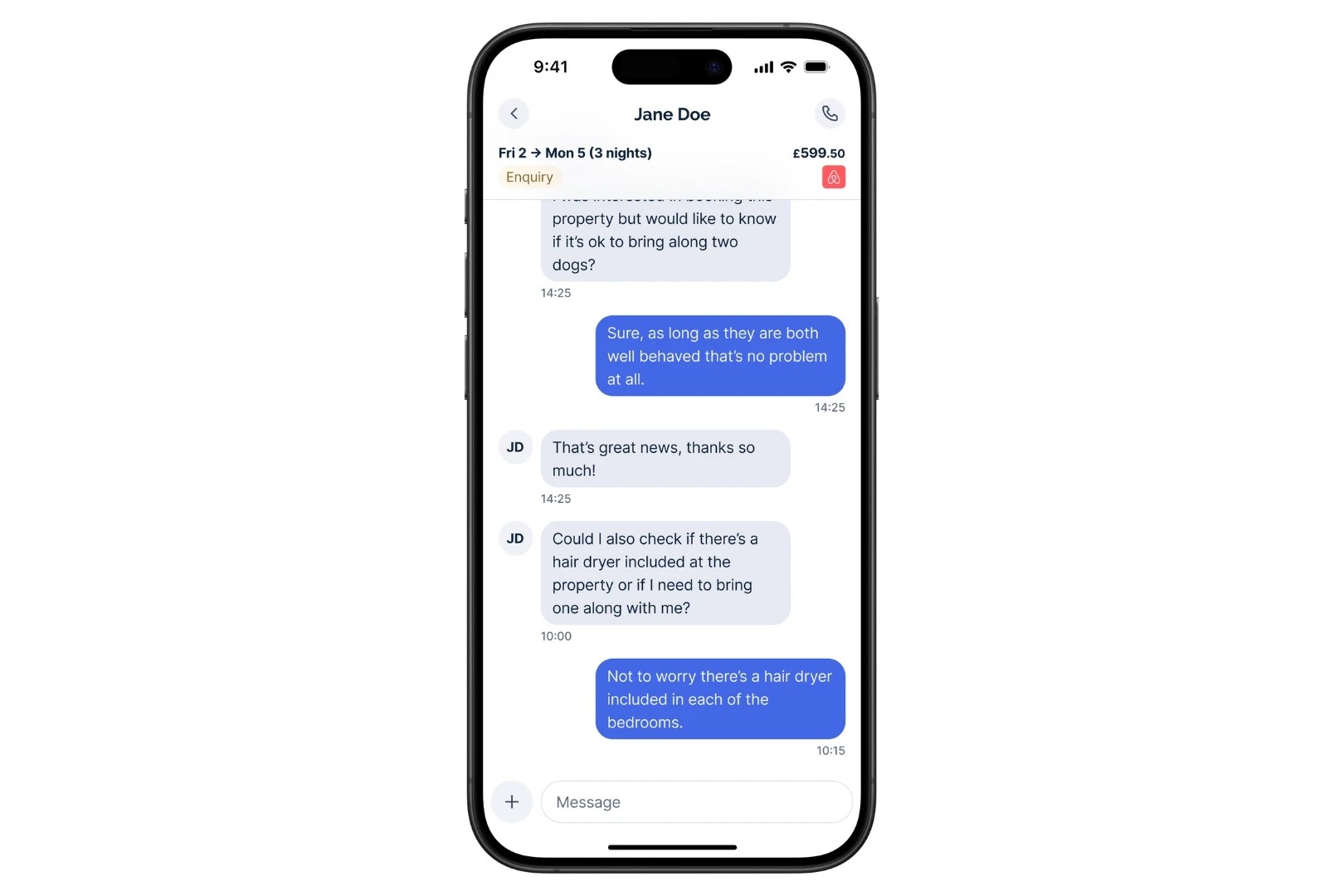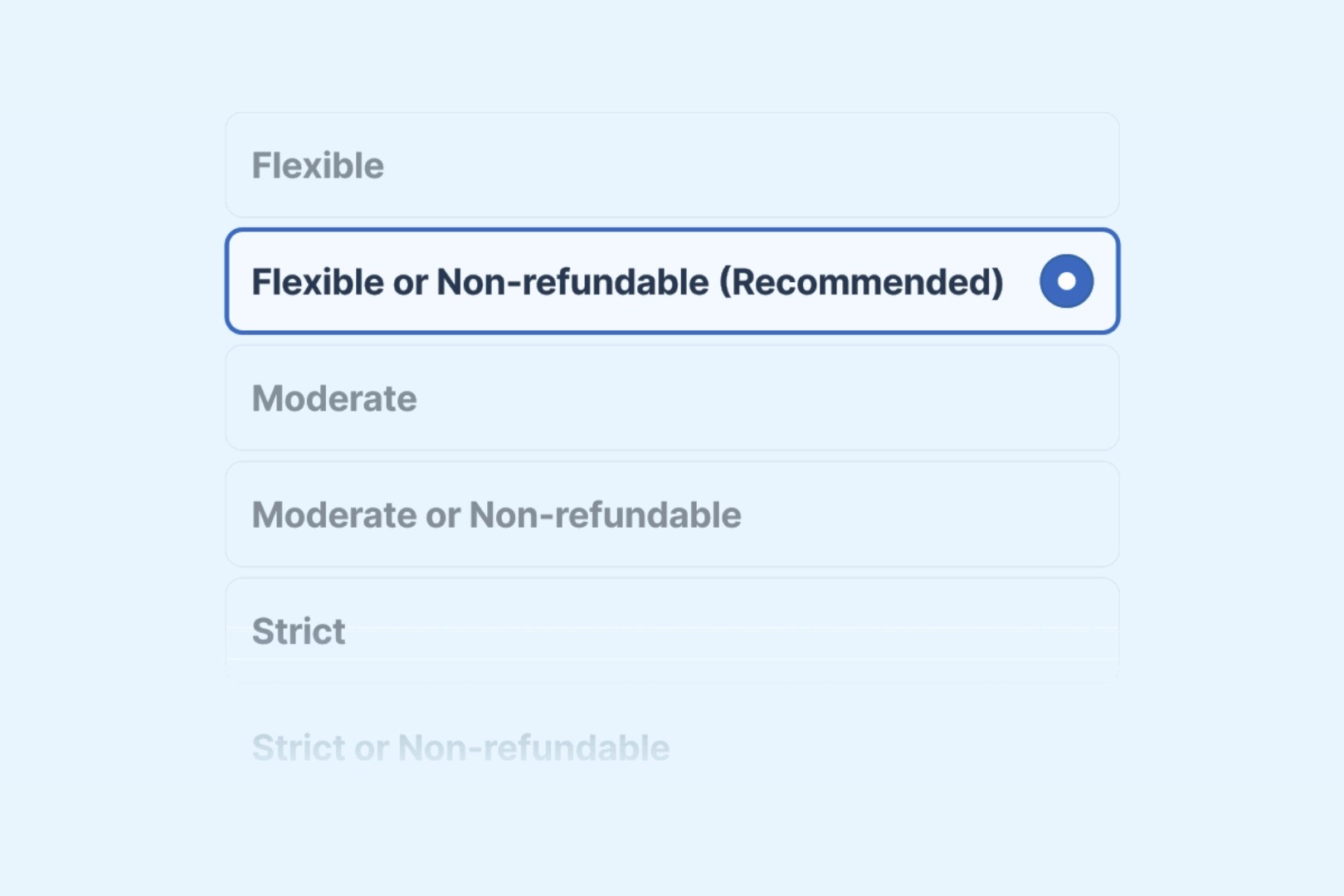Marketing tips
Top tips for vacation rental hosts to avoid booking cancellations in 2024
23 Aug 2024
·
By Pamela Sousa
We understand the frustration that cancellations can cause and the impact they have on your income. However, there are a few ways to avoid last-minute cancellations, such as remembering to block your vacation rental calendar and offering alternatives if a guest decides to cancel at the last minute. Cancellations can be a real pain for holiday rental hosts and guests, no matter the time of year. They not only disrupt your schedule but also cut into your potential earnings. Beyond the immediate inconvenience, frequent cancellations can impact your listing's visibility and reputation. As we move through 2024, we’d like to share our best practices to help you earn more and reduce the inconvenience of cancellations.
How booking cancellations can impact your property listings and your vacation rental business overall
Revenue impact
Booking cancellations can be a challenge for holiday rental businesses in 2024, but they also offer opportunities to adapt and improve. While cancellations can affect income, having flexible solutions in place can help fill those gaps quickly. Regardless of the season, every booking is valuable. By being prepared with strategies to manage cancellations, you ensure business resilience and steady revenue.
Search ranking effects
Cancellations can impact how often your property appears in searches on booking sites like Airbnb, Booking.com, Vrbo and HomeToGo. These websites prioritise properties with frequent bookings and good reviews. If you cancel bookings often, your property might show up lower in search results, making it harder for guests to find.

Unexpected booking cancellation fee
For hosts using Travelnest, it's important to know there's a cancellation fee if you decide to cancel a booking. Additionally, sites like Airbnb and Booking.com add a channel fee on top of the Travelnest fee. When a host cancels, it disrupts the guest's plans and impacts the host's reputation and future bookings. This fee can vary based on the timing of the cancellation and the terms agreed upon at the time of booking. By understanding these implications, you can make informed decisions and avoid unnecessary costs while maintaining a good standing with your guests. Read our full guide about booking cancellations if you’re a Travelnest host.
Top tips to avoid reducing the inconvenience of cancellations
Make sure your calendar is up to date
Keeping your calendar up to date is essential to avoid cancellations and ensure a positive guest experience. It can be frustrating for travellers to find that a property they like is not actually available.
If you’re a Travelnest host, as soon as you list your vacation rental on over 30 top booking sites, our platform will sync your calendar with them. However, if you list your property outside of Travelnest, you can use the iCal sync tool to sync your external calendars with Travelnest to prevent double bookings and make it easier to manage your bookings. There is also an option to block and unblock dates manually if your property won’t be able to accept bookings. Instant Booking is another important feature that all Travelnest hosts have automatically enabled to increase their chances of receiving bookings and to ensure guests do not have to wait for booking confirmation.

Booking notice period
Setting the right booking notice period is essential for avoiding cancellations and keeping your holiday rental business running smoothly. Booking notice is the number of days you require between a guest booking and arrival. It helps you save time by scheduling, cleaning and handling any last-minute fixes to make sure the property is ready to receive guests.If you're a Travelnest host, you can choose a shorter notice period in your Travelnest account, typically between 1-3 days, to increase your chances of filling availability, especially during unpredictable travel conditions.
Consider several key factors to ensure your booking notice period matches your operational capabilities and guest expectations. If you don't live near your property, you might need a longer notice period. Scheduling cleaning services in advance, especially if deep cleaning is needed, will also affect this timeframe. Additionally, consider any necessary maintenance or repairs. Balancing these needs with the ability to accept last-minute bookings can help maximise occupancy and revenue. By evaluating these aspects, you can set an effective booking notice period that keeps your property guest-ready while avoiding cancellations.
Communicate with your Airbnb and Booking.com guests through Guest Messaging or Mobile App on the go
Communication is key, especially when issues arise. If maintenance problems occur or you can't accommodate your guests for any reason, use the Guest Messaging or Mobile App to connect with them. By discussing the situation openly, you might find common ground, such as moving the booking to alternative dates or relocating them to another property you own. This proactive approach can help avoid cancellations and the fees involved. Plus, it shows your commitment to exceptional guest service and helps maintain your search rankings, as frequent cancellations can decrease your visibility on booking sites.

Cancellation policy and non-refundable rates
Your cancellation policy should be crystal clear and easily accessible to potential guests. Ensure it outlines the penalties for cancellations and any security deposit required in your listing description.Clearly stating the cancellation deadlines and any applicable fees helps set expectations and reduces the likelihood of last-minute cancellations. It's also a good idea to remind guests of these details as soon as you confirm their booking, ensuring they are fully aware of the terms if they decide to cancel.
If you are listing your property through Travelnest on booking sites like Airbnb and Booking.com, you have the option to choose non-refundable rates alongside your chosen cancellation policy. A non-refundable rate policy means that guests pay a lower price for their stay but cannot receive a refund if they cancel. Typically, guests can receive a discount of around 10-20% when booking under non-refundable rates. Travelnest recommends using this policy because it secures your revenue upfront and significantly reduces the chances of cancellations. This option is particularly appealing to guests who are confident in their travel plans and looking for a good deal. By offering non-refundable rates, you can attract committed guests and ensure your calendar remains full.

Offer flexible booking options
Flexibility in booking options is essential for guests, especially with the blending of business and leisure travel driven by remote work. According to TravelPerk statistics, one in three travellers prioritises flexibility over all other factors when making reservations. By offering flexible booking and cancellation policies, hosts can attract diverse guests, maintain year-round occupancy, and enhance guest satisfaction. This adaptability not only helps hosts stay competitive but also provides guests with peace of mind, reducing the likelihood of cancellations. If a guest books dates that are unavailable for your property, consider reaching out to suggest alternative dates. By offering a different time frame that works for both parties, you can adjust the booking date instead of declining it, ensuring you still meet the traveller's expectations.
Stay on top of guests' behaviour
In 2024, guest expectations and booking habits are changing. People are now booking closer to their travel dates and are seeking flexible cancellation policies. As a result, you may need to adapt to shorter lead times, making it challenging to fill last-minute dates on your calendar. Consider offering last-minute promotions on Airbnb or Booking.com to help attract these bookings. Booking cancellations can disrupt your cash flow, impact your online visibility, and increase your workload. To tackle these challenges, consider implementing flexible policies or adding non-refundable rates for your property listings on Airbnb and Booking.com. Embracing technology for efficient management is also crucial for a successful holiday rental business in 2024. You can choose a holiday rental platform like Travelnest to manage all aspects of your vacation rental in one place.

Conclusion
In conclusion, managing booking cancellations effectively is crucial for the success of your vacation rental business. By adopting proactive measures such as keeping your calendar up to date, setting a suitable booking notice period, and maintaining clear communication with your guests, you can significantly reduce the chances of last-minute cancellations. Offering flexible booking and cancellation policies, alongside non-refundable rates, can attract a wider range of guests and ensure steady occupancy throughout the year.
Embracing technology and using a vacation rental platform like Travelnest can streamline your operations, sync your calendars, and handle bookings across multiple sites, making it easier to manage your property and provide a seamless experience for your guests. As guest expectations and booking habits evolve, staying adaptable and leveraging these strategies will help you maintain a competitive edge, ensuring your rental business thrives in 2024 and beyond.
